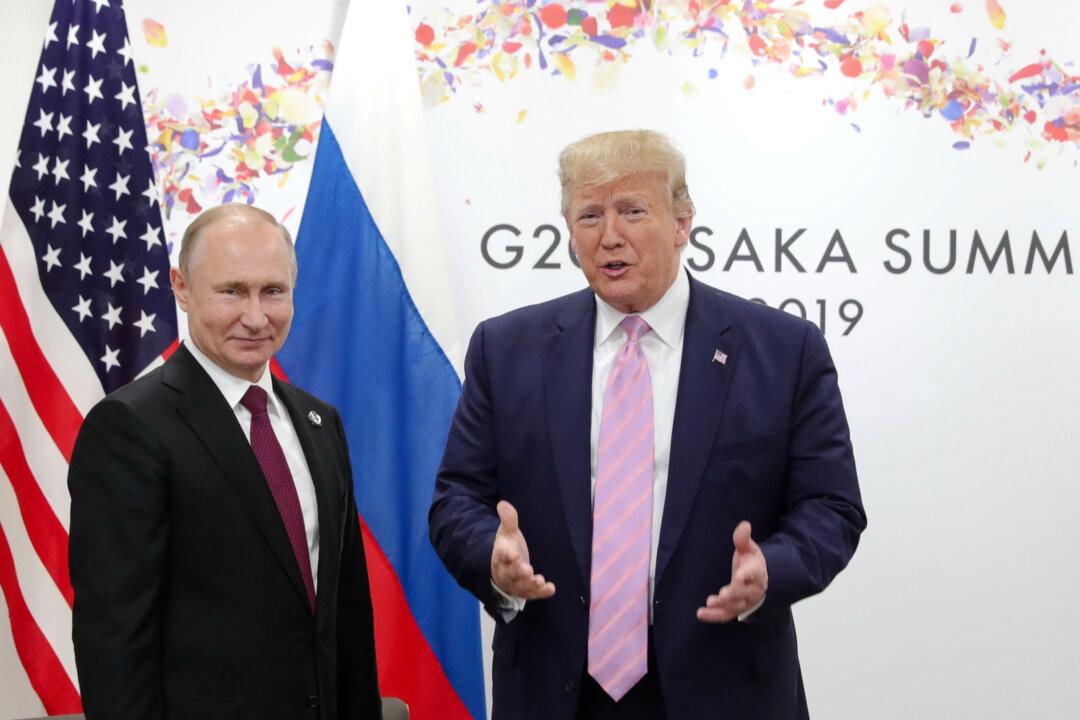The Kremlin has stated that there has been no progress on organizing the much-anticipated meeting between U.S. President Donald Trump and Russian President Vladimir Putin that could be key to ending the Russia-Ukraine war.
Dmitry Peskov, the Kremlin’s spokesperson, told Russian media on Feb. 3 that there was no new information regarding a potential Trump-Putin meeting. He made the remarks in response to questions about a Reuters report saying that the Russian side was considering the United Arab Emirates (UAE) and Saudi Arabia as possible venues for the talks.





